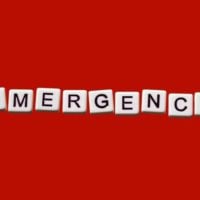The European Union (EU) has established a robust framework for development funding aimed at supporting various initiatives across member states and beyond. These funds are designed to address a wide range of social, economic, and environmental challenges, promoting sustainable development and enhancing the quality of life for communities. The EU Development Funds encompass several programs, including the European Development Fund (EDF), the European Social Fund (ESF), and the Cohesion Fund, each targeting specific areas such as poverty alleviation, job creation, and infrastructure development.
Understanding these funds is crucial for non-governmental organizations (NGOs) seeking financial support for their projects. The EU allocates billions of euros annually to these funds, reflecting its commitment to fostering growth and stability in both EU member states and developing countries. The funds are not only a source of financial assistance but also a means to promote collaboration among various stakeholders, including governments, NGOs, and private sector entities.
By leveraging these resources, NGOs can implement impactful projects that align with the EU’s strategic objectives, such as the Sustainable Development Goals (SDGs). Therefore, a comprehensive understanding of the EU Development Funds is essential for NGOs aiming to secure funding and contribute to meaningful change.
Eligibility Criteria for EU Development Funds
Navigating the eligibility criteria for EU Development Funds can be a complex process, as each fund has its own specific requirements. Generally, NGOs must demonstrate that they are legally registered entities operating within the EU or in partner countries eligible for funding. Additionally, organizations must have a proven track record of successfully managing projects similar in scope and scale to those they intend to propose.
This often includes providing evidence of previous funding received and the outcomes achieved, which can significantly enhance an NGO’s credibility in the eyes of funders. Moreover, NGOs must align their project proposals with the strategic priorities outlined by the EU. This means that organizations need to conduct thorough research to ensure their initiatives address the pressing issues identified by the EU, such as climate change, social inclusion, and economic development.
Furthermore, collaboration with local communities and stakeholders is often a prerequisite for funding approval, as it demonstrates a commitment to participatory approaches and enhances the sustainability of proposed projects. Understanding these eligibility criteria is vital for NGOs to position themselves effectively when applying for EU Development Funds.
Identifying Suitable EU Development Funds for Your NGO
Identifying the most suitable EU Development Funds for your NGO requires a strategic approach that involves thorough research and analysis. Start by reviewing the various funding programs available under the EU umbrella, paying close attention to their specific objectives, target beneficiaries, and geographical focus. For instance, some funds may prioritize projects in certain regions or sectors, such as education or health care, while others may be more general in their approach.
By aligning your NGO’s mission with the right funding sources, you can increase your chances of securing financial support. Additionally, consider leveraging online platforms and databases that aggregate information on available EU funding opportunities. Websites such as the European Commission’s Funding & Tenders Portal provide comprehensive listings of current calls for proposals and grants.
Engaging with networks and forums dedicated to EU funding can also be beneficial, as they often share insights and experiences from other NGOs that have successfully navigated the funding landscape. By actively seeking out relevant opportunities and staying informed about upcoming calls for proposals, your NGO can position itself strategically to access the necessary resources for its initiatives.
Applying for EU Development Funds
The application process for EU Development Funds can be intricate and competitive, necessitating careful preparation and attention to detail. A well-crafted proposal is essential to stand out among numerous applicants. Begin by thoroughly understanding the guidelines provided by the funding program you are targeting.
These guidelines typically outline the specific requirements for project proposals, including budgetary constraints, project timelines, and expected outcomes. Adhering closely to these guidelines is crucial for ensuring that your application meets all necessary criteria. When drafting your proposal, it is important to articulate a clear and compelling project narrative that outlines your NGO’s objectives, target audience, and implementation strategy.
Incorporate data and evidence to support your claims about the need for your project and its potential impact. Additionally, consider including a detailed budget that transparently outlines how funds will be allocated across various project components. Engaging stakeholders in the proposal development process can also enhance your application by demonstrating community support and collaboration.
Ultimately, a well-prepared application can significantly increase your chances of securing EU Development Funds.
Meeting Reporting and Accountability Requirements
Once an NGO successfully secures EU Development Funds, it is imperative to understand and fulfill the reporting and accountability requirements associated with the grant. The EU places a strong emphasis on transparency and accountability in the use of public funds, which means that NGOs must maintain meticulous records of their expenditures and project activities. Regular reporting is typically required at various stages throughout the project lifecycle, including interim reports and a final evaluation report upon project completion.
To meet these requirements effectively, NGOs should establish robust monitoring and evaluation frameworks from the outset of their projects. This involves setting clear performance indicators that align with the objectives outlined in the original proposal. By systematically collecting data on project outcomes and impacts, NGOs can provide comprehensive reports that demonstrate accountability to funders while also informing future project planning.
Additionally, fostering open communication with funders throughout the project can help build trust and facilitate any necessary adjustments based on feedback received during reporting periods.
Utilizing EU Development Funds Effectively
Effectively utilizing EU Development Funds requires strategic planning and implementation to maximize impact. NGOs should begin by developing a detailed project plan that outlines key activities, timelines, and responsible parties. This plan should be flexible enough to accommodate any unforeseen challenges while remaining focused on achieving the project’s objectives.
Regularly reviewing progress against established milestones can help ensure that projects stay on track and within budget. Moreover, engaging beneficiaries throughout the project implementation process is crucial for ensuring that initiatives remain relevant and responsive to community needs. By soliciting feedback from stakeholders and adapting project activities accordingly, NGOs can enhance their effectiveness and foster greater ownership among local communities.
Additionally, sharing successes and lessons learned with other organizations can contribute to collective knowledge-building within the sector and inspire innovative approaches to addressing similar challenges.
Building Partnerships for EU Development Fund Projects
Building strong partnerships is essential for enhancing the effectiveness of projects funded by EU Development Funds. Collaborating with other NGOs, government agencies, academic institutions, and private sector entities can bring diverse expertise and resources to your initiative. These partnerships can also facilitate knowledge sharing and capacity building among stakeholders, ultimately leading to more sustainable outcomes.
When forming partnerships, it is important to establish clear roles and responsibilities among all parties involved. This includes defining how resources will be shared, how decisions will be made, and how communication will be managed throughout the project lifecycle. Additionally, fostering a culture of collaboration based on mutual respect and shared goals can strengthen partnerships over time.
By leveraging collective strengths and resources through strategic partnerships, NGOs can enhance their ability to implement impactful projects funded by EU Development Funds.
Evaluating the Impact of EU Development Fund Projects
Evaluating the impact of projects funded by EU Development Funds is critical for demonstrating accountability to funders while also informing future initiatives. A comprehensive evaluation process should encompass both qualitative and quantitative methods to assess project outcomes effectively. This may involve collecting data through surveys, interviews, focus groups, or case studies that capture beneficiaries’ experiences and perspectives.
Furthermore, establishing baseline data before project implementation allows NGOs to measure changes over time accurately. By analyzing this data against established performance indicators, organizations can assess whether they have achieved their intended objectives and identify areas for improvement. Sharing evaluation findings with stakeholders not only enhances transparency but also contributes to ongoing learning within the organization and the broader sector.
Ultimately, a commitment to rigorous evaluation practices ensures that NGOs can demonstrate their impact while continuously refining their approaches to better serve communities in need.









































